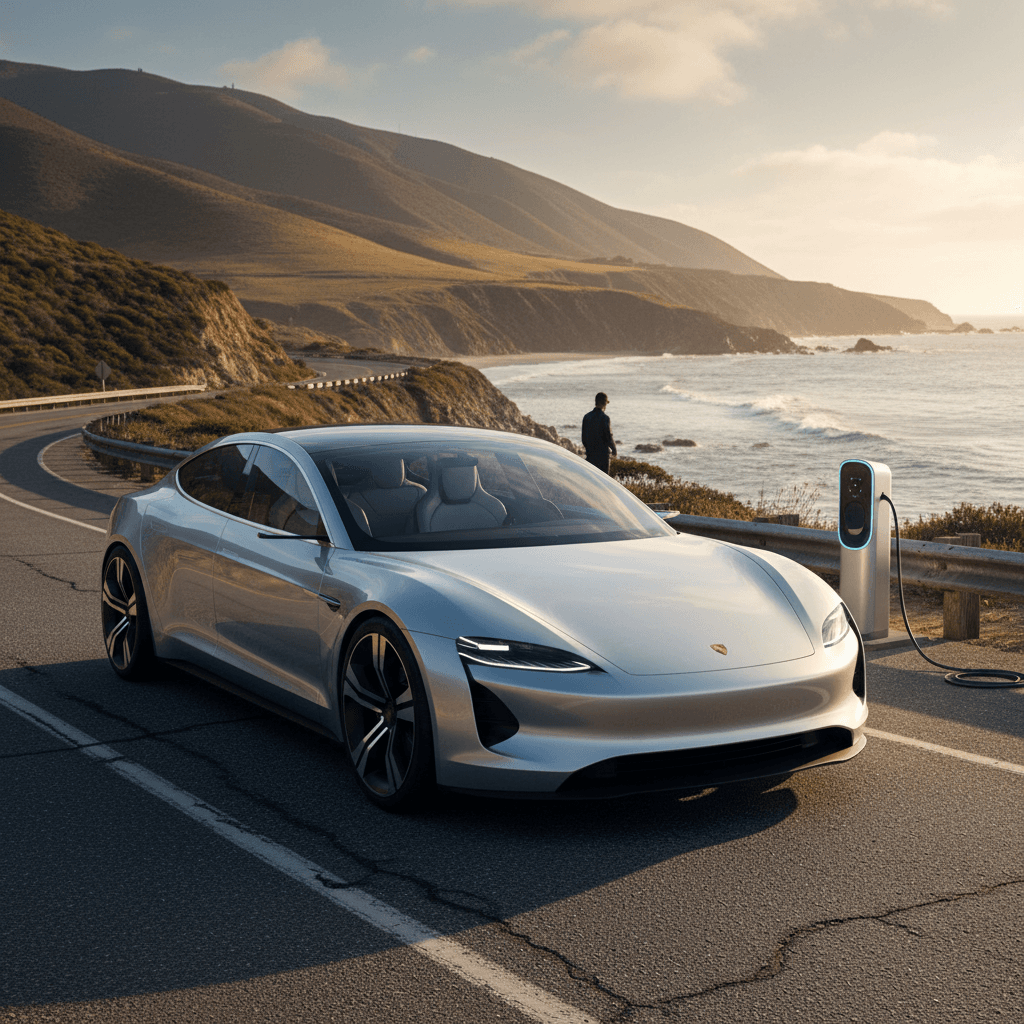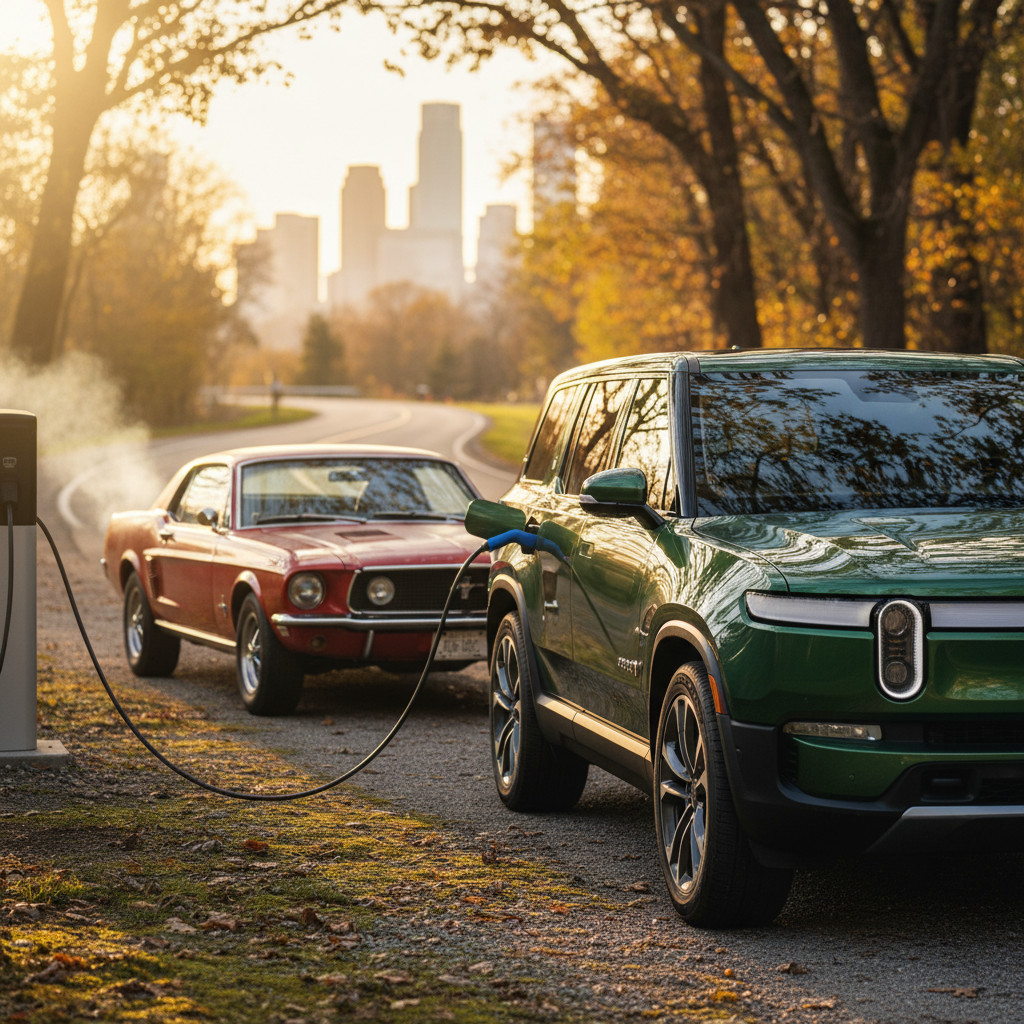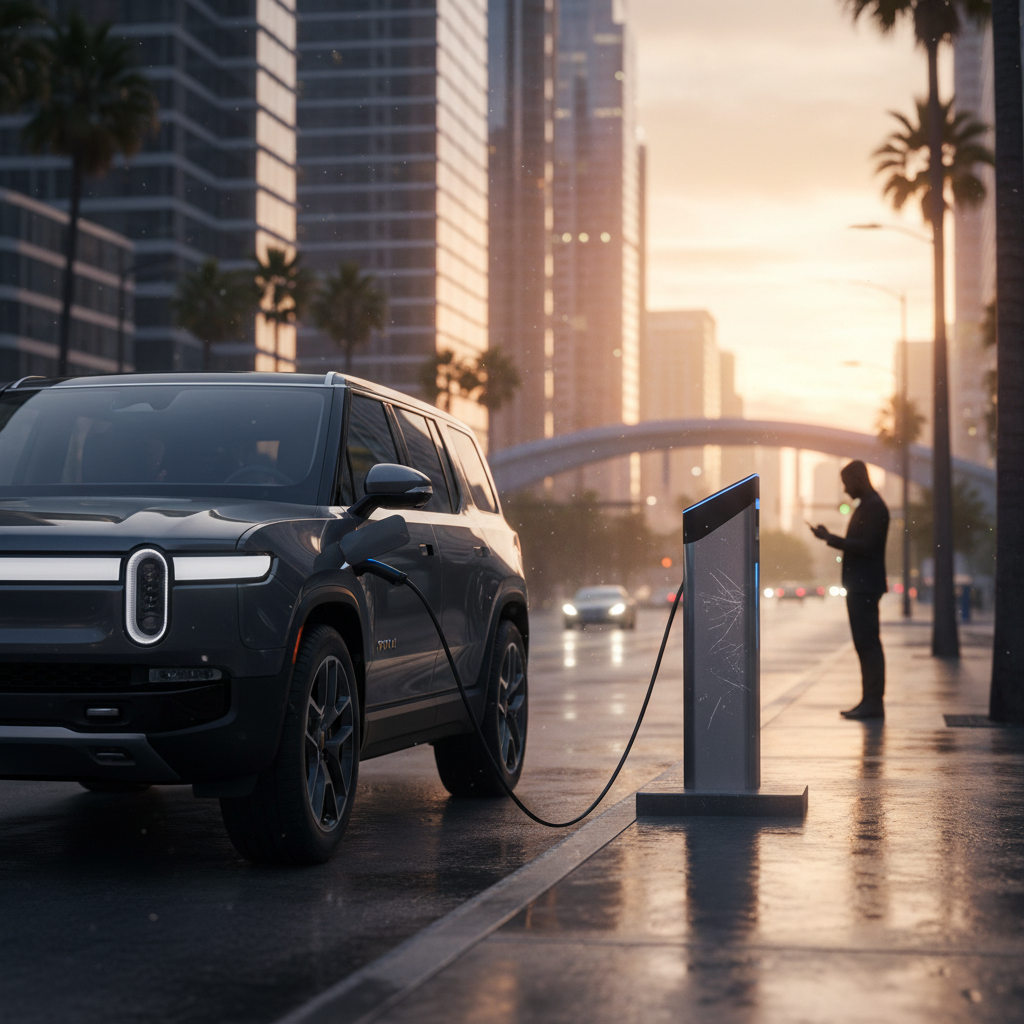If you search for the newest car company, you won’t get a simple, one‑word answer. Automakers are launching, pivoting, going bankrupt, and relaunching faster than at any point in the modern car business, especially in EVs. Instead of a single winner, 2025 is defined by a wave of new electric‑first brands that are challenging what a car company looks like.
Key takeaway
Why “newest car company” is a tricky question
When people ask about the newest car company, they usually mean one of three things:
- The most recently founded automaker that actually plans to build cars at scale.
- The latest startup to come out of stealth and show a production‑intent vehicle.
- The newest brand whose cars customers can realistically expect to see on the road in the next few years.
Because startups can be formed, funded, and folded in just a few years, the “newest” changes constantly. That’s especially true in the EV space, where high capital needs and brutal competition have already sidelined companies like Fisker, even as fresh money pours into new names.
Why this matters for shoppers
The headline new car companies in 2025
Snapshot: new EV‑focused car companies to watch
Among the many new EV‑centric automakers, three names stand out in late 2025 as especially relevant to U.S. shoppers keeping an eye on the market:
- Slate Auto – a U.S. startup backed by Jeff Bezos, promising a sub‑$28,000 electric pickup that can convert into an SUV.
- Xiaomi Auto – the Chinese electronics giant’s car arm, already building and selling the Xiaomi SU7 electric sedan at scale in China.
- Telo Trucks – a California startup developing the MT1, a subcompact electric pickup with a footprint closer to a hatchback than a full‑size truck.
How to think about "newest"
Slate Auto: The Bezos‑backed “anti‑Cybertruck”

If you’re looking for a candidate for “newest car company” with real momentum behind it, Slate Auto belongs near the top of the list. Founded in 2022 and based in Troy, Michigan, Slate has raised hundreds of millions of dollars, reportedly including money from Jeff Bezos, to build a small, inexpensive electric truck for U.S. buyers.
What makes Slate Auto different
A throwback formula with modern EV guts
Back‑to‑basics truck
Aggressive pricing
Modular design
Slate is positioning itself as an "anti‑Tesla" or "anti‑Cybertruck" brand: fewer gadgets, more basic hardware, and a focus on affordability and repairability. Deliveries are currently targeted for the mid‑to‑late 2020s, which means you won’t see Slate vehicles in the used‑EV market right away, but the company is central to the conversation about new American automakers.
U.S. production and incentives
Other notable new EV startups to know
Slate isn’t alone. Around the world, a mix of tech giants and small engineering teams are trying to become the next household‑name automaker. Here are a few of the most significant newer car companies as of late 2025.
Xiaomi Auto: When a phone company builds a car
Beijing‑based Xiaomi, best known for smartphones and consumer electronics, formally established its car unit in 2021 and launched its first vehicle, the Xiaomi SU7 electric sedan, in 2024.
- Mass‑market, tech‑heavy EV aimed squarely at Tesla’s Model 3 and other compact sedans.
- Tight integration with Xiaomi’s phones, smart‑home ecosystem, and software.
- Positioned as a high‑volume player in China first, with longer‑term global ambitions.
For U.S. shoppers, Xiaomi’s cars aren’t in showrooms, and may not be for some time, but they matter because they show how consumer‑tech companies can become serious automakers almost overnight.
Telo Trucks: Shrinking the American pickup
Telo Trucks, founded in 2022 in California, is taking the opposite tack from the oversized, six‑figure electric pickups we’ve seen so far.
- Debut model MT1 is a subcompact electric pickup with a footprint closer to a compact hatchback.
- Targets urban and fleet buyers who need truck utility but can’t live with full‑size dimensions.
- Production is currently slated for the mid‑2020s, with early interest from fleets and design‑conscious buyers.
In a market where parking a full‑size truck in a city garage is a headache, Telo is betting small really is the new big.
Other young EV brands on the radar
Not all are brand‑new, but they’re still relatively young compared with Detroit or Toyota
Rivian
Aptera Motors
Regional niche players
Not every new car company survives
How new car companies differ from legacy automakers
For more than a century, new car companies were rare. The capital requirements, dealer networks, and regulatory hurdles kept the field tight. The EV era has cracked that system open, but it hasn’t eliminated the hard parts. New automakers tend to share a few traits that set them apart from legacy brands like Ford, Toyota, or GM.
New EV startups vs. legacy automakers: what’s different?
How today’s newest car companies stack up against the old guard.
| Factor | New EV startups | Legacy automakers |
|---|---|---|
| Brand age | Often under 10 years old | Decades of history and data |
| Capital & cash flow | Dependent on venture capital and fundraising cycles | Funded by global sales, finance arms, and established credit |
| Manufacturing | New plants, contract manufacturing, or re‑tooled small facilities | Global factory networks with deep supplier relationships |
| Dealer & service networks | Direct sales or small service footprints, heavy use of mobile service | Dense dealer networks, established parts pipelines |
| Software & tech | Often leading on UX, OTA updates, and app integration | Catching up rapidly but still modernizing legacy systems |
| Survivability risk | High, bankruptcy or acquisition is a real possibility | Lower, though not zero; restructuring happens, but rarely overnight |
Use this comparison as a lens whenever you look at a brand you’ve only just heard about.
The upside of new car companies
What it means if you buy from a new car company
From a distance, new car companies look exciting: fresh designs, bold promises, and marketing that speaks to frustrated buyers who can’t stomach another anonymous crossover. Up close, the picture is more complicated, especially once you factor in the realities of ownership and resale.
Ownership realities with a young automaker
Questions to answer before you sign
Service & repairs
Warranty & support
Resale value
Battery health
If you’re shopping the new‑car market, those questions should shape which deposit you place. If you’re looking at the used‑EV market, they become even more critical, because you’re stepping in after the honeymoon period, when real‑world reliability and support stories start to surface.
Buying a used EV from a young brand

As more early adopters cycle out of their first‑generation EVs, used vehicles from newer brands, in time, that will include names like Slate or Telo, will filter into the secondary market. Some will be bargains. Others will be headaches. The difference comes down to data and support.
Where the risk shows up
- Uneven quality: Startups iterating quickly can make major hardware or software changes year to year, which means some early builds may be less refined.
- Patchy service history: Limited networks can make it harder for early owners to keep meticulous, dealer‑stamped records.
- Brand uncertainty: A bankruptcy or restructuring can dent resale values and complicate warranty support.
Where the opportunity is
- Faster depreciation: New brands typically don’t hold value like Toyota or Honda early on, which means larger discounts for second owners.
- Cutting‑edge features: You may get modern range, charging speeds, and software at a price similar to older legacy EVs.
- Transparent diagnostics: Third‑party tools, like Recharged’s battery‑health diagnostics, can level the playing field, letting you compare a young brand’s used EV against more established names on equal terms.
How Recharged helps
Checklist before you buy from a new automaker
Due‑diligence checklist for the newest car companies
1. Confirm funding and production status
Is the company actually building vehicles, or still in prototype and fundraising mode? Targeted production dates can slip, sometimes by years.
2. Map out service coverage
Look up where the nearest service center or certified repair facility is. If it’s several states away, think carefully about breakdown scenarios.
3. Study battery and drivetrain warranties
Compare warranty length and coverage details, not just years and miles, but what’s included. Pay special attention to battery degradation terms.
4. Check charging compatibility
Verify whether the vehicle uses NACS, CCS, or another standard, and how that fits with the public charging networks you’ll rely on.
5. Research early owner experiences
Even a few hundred early customers can reveal patterns: software bugs, build‑quality issues, or surprisingly good support.
6. Plan your exit
Ask yourself: if I need to sell this EV in three to five years, who will want it? Look at competing vehicles, incentives, and brand momentum.
FAQ: “Newest car company” and EV startups
Frequently asked questions about the newest car companies
The bottom line on the newest car companies
In 2025, the question isn’t just, “What’s the newest car company?” It’s, “Which of these new EV‑first automakers will still be around to support their customers in a decade?” Names like Slate Auto, Xiaomi Auto, and Telo Trucks highlight how quickly the landscape is changing, and how much creativity is flowing into electric pickups, compact trucks, and tech‑heavy sedans.
For shoppers, the playbook is straightforward: enjoy the innovation, but do your homework. Pay attention to funding, service coverage, charging standards, and especially battery health, whether you’re buying new or browsing the used‑EV market. And if you’re weighing a used EV from a younger brand, leaning on a platform like Recharged, with its battery diagnostics, fair‑market pricing, and end‑to‑end support, can help you capture the upside of new automakers while keeping the downside in check.



